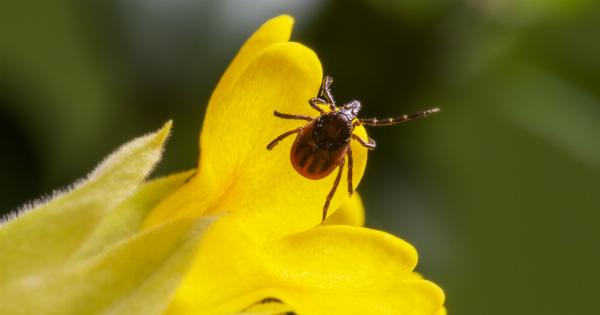Ticks are small, blood-sucking parasites that are commonly found in grassy and wooded areas. They can latch onto anyone who spends time outdoors, including children.
While most tick bites are harmless, some ticks can transmit serious illnesses such as Lyme disease, Rocky Mountain spotted fever, and tick paralysis. In addition, ticks can sometimes trigger psychogenic cough in children. As a parent, it’s important to know the signs and symptoms of both tick-borne illnesses and psychogenic cough, and how to prevent and treat them.
Ticks and Tick-Borne Illnesses
Ticks are most active during the late spring and summer months, but they can be found year-round in some areas.
They tend to hang out in tall grass, brush, and wooded areas, and can attach themselves to any part of the body that comes into contact with them. Often, ticks are so small that they can be difficult to see, especially if they are in the nymph stage. However, if you do spot a tick on your child, it’s important to remove it as soon as possible to reduce the risk of infection.
Signs and symptoms of tick-borne illnesses can range from mild to severe, and may include:.
- Flu-like symptoms, such as fever, fatigue, and muscle aches
- A rash that may appear several days after the tick bite
- Joint pain or swelling
- Nausea, vomiting, or diarrhea
- Difficulty breathing or shortness of breath
If you suspect that your child has been bitten by a tick and is showing any signs of a tick-borne illness, it’s important to seek medical attention right away.
Your child’s doctor may prescribe antibiotics or other treatments to help manage the symptoms and prevent the infection from spreading.
Psychogenic Cough
Psychogenic cough, also known as habit cough or tic cough, is a type of chronic cough that is not caused by a physical illness or underlying medical condition.
Instead, it is believed to be a behavioral or psychological issue, and is often triggered or exacerbated by stress or anxiety. Psychogenic cough is most common in children and adolescents, and can last for weeks, months, or even years if left untreated.
Signs and symptoms of psychogenic cough may include:.
- A persistent cough that is dry, barking, or honking in nature
- A cough that worsens when the child is stressed or anxious
- A cough that improves when the child is sleeping or distracted
- No other signs of illness, such as fever or congestion
If your child is experiencing psychogenic cough, it’s important to seek help from a healthcare professional who specializes in pediatric respiratory disorders.
In some cases, behavioral therapy or counseling may be recommended to help your child learn stress-reduction techniques and break the coughing habit.
Prevention and Treatment
The best way to prevent tick-borne illnesses is to avoid tick bites in the first place. You can help protect your child by taking the following steps:.
- Wearing long pants and sleeves while in wooded or grassy areas
- Using insect repellent with at least 20% DEET
- Checking your child’s skin and clothing for ticks after spending time outdoors
- Removing ticks as soon as possible with fine-tipped tweezers
- Washing your child’s skin and clothing with soap and water after coming indoors
If your child does develop a tick-borne illness, the treatment will depend on the specific infection and the severity of the symptoms. Antibiotics and other medications may be prescribed to help manage the symptoms and prevent complications.
To prevent and treat psychogenic cough, it’s important to work with a healthcare professional who specializes in pediatric respiratory disorders.
Behavioral therapy, counseling, and other relaxation techniques may be recommended to help your child manage stress and break the coughing habit.
Conclusion
Ticks and psychogenic cough are two common health issues that can affect children. By knowing the signs and symptoms, and taking steps to prevent and treat these conditions, parents can help keep their children healthy and happy.
























